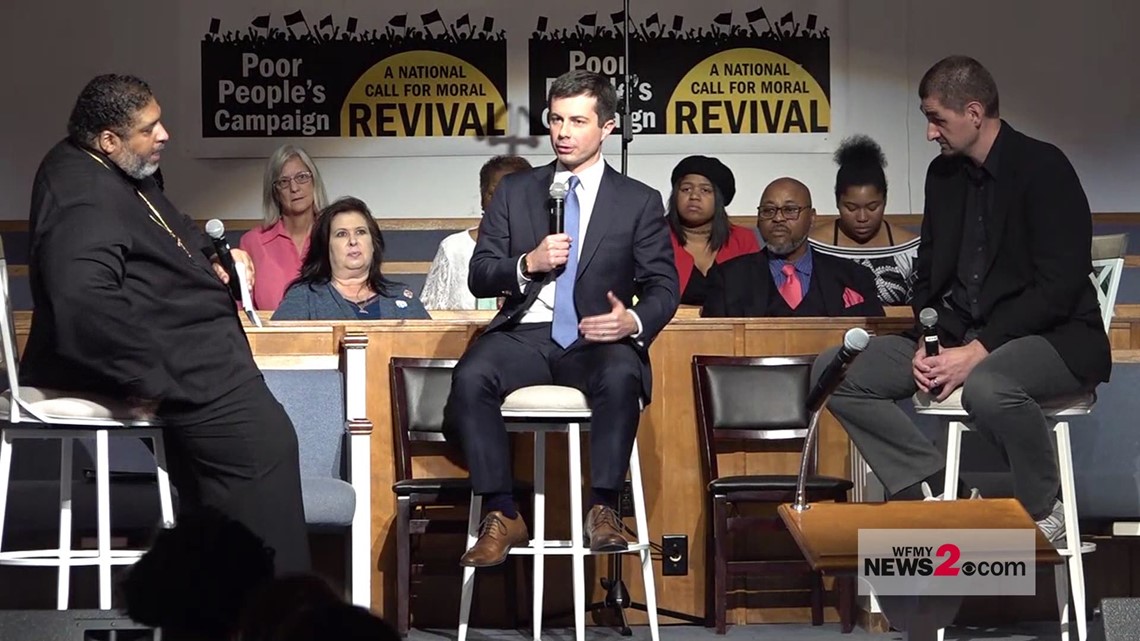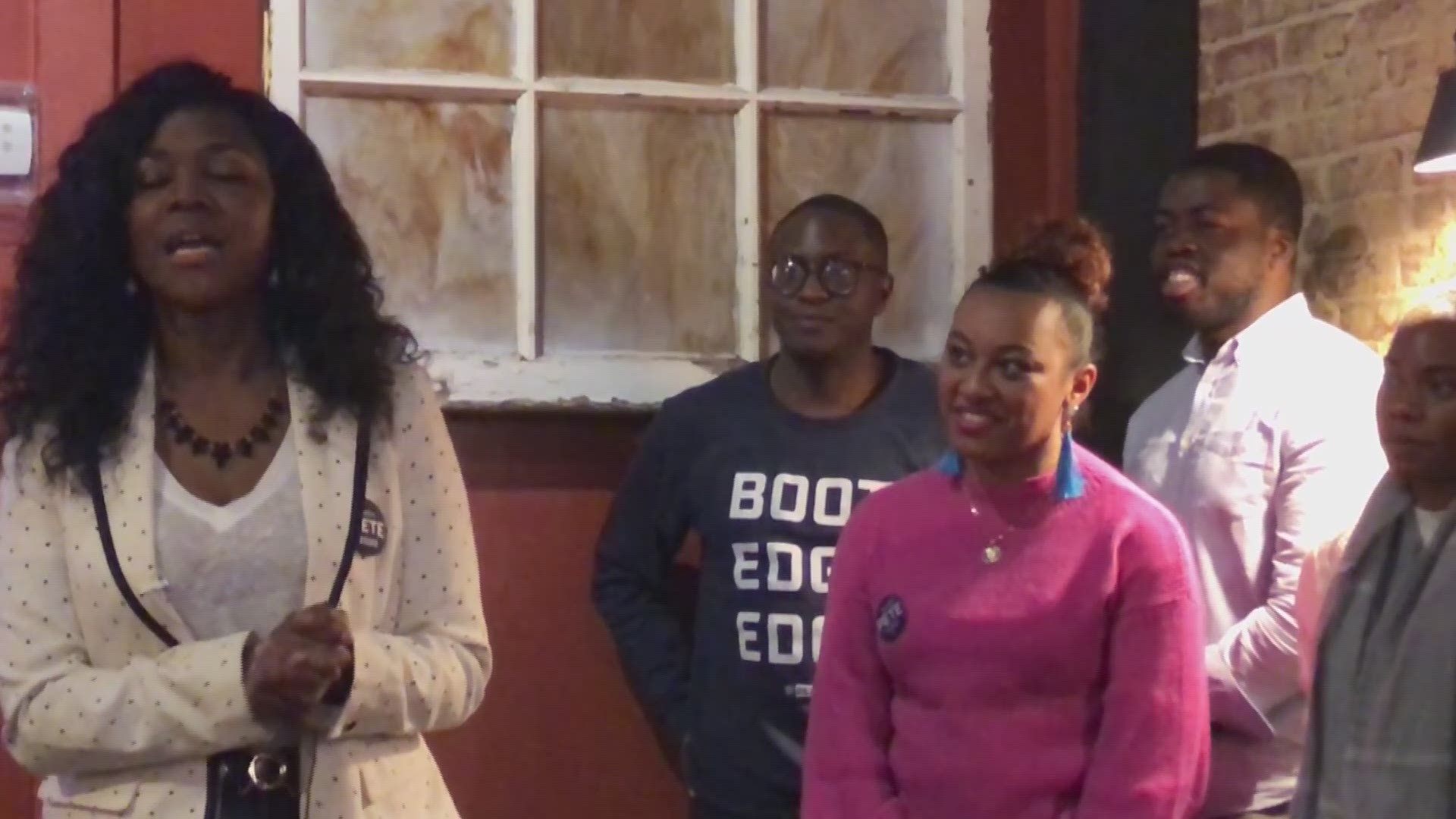As he labors to win over black voters whose support is vital to his Democratic presidential bid, Pete Buttigieg found a receptive host on Sunday in a civil rights activist who has sought to continue the Rev. Martin Luther King Jr.'s push for a racially diverse national campaign against poverty.
After attending services at the Rev. William Barber's Greenleaf Christian Church, Buttigieg stayed for a discussion with the Poor People's Campaign — begun by King shortly before he was assassinated in 1968. Barber, a pastor and former North Carolina NAACP president, revived the movement to unite a new generation of Americans of all races to combat economic inequality.
The visit with Barber's racially diverse congregation held dual value for Buttigieg, illustrating his ability to tackle racial justice issues critically important to African-Americans and giving him a chance to portray his agenda as bigger than appealing to one specific voting bloc. He also hoped to introduce himself to black voters and lay out his plans for their community through their shared Christian faith and values.
"Part of what I'm trying to do is talk about these issues, including specific racial issues around voter suppression and systemic racism, in a way that helps everyone in the country understand why we all have a stake in dealing with it," Buttigieg told reporters after the poverty discussion. The South Bend, Indiana, mayor added that he believes he is making progress with black voters, including those "who may yet not feel that they know me."
Buttigieg discussed topics from health care to climate change during the forum that followed the church's Sunday service, to which a campaign spokesman confirmed that the mayor brought his own Bible. Even before the candidate began speaking, however, Barber sought to defuse a question that has proven thorny for Buttigieg in his struggle to break through with black voters: whether being gay plays any role in his troubles with a constituency that can trend more socially conservative.
Barber swatted away what he called the "false narrative" of division between African-American and LGBTQ voters, and after the service reiterated that any portrayal of tension between the two communities is "not factual."
Buttigieg's problems gaining ground with black voters have persisted since earlier in his campaign, when he faced tough questions back home after the shooting of an African-American man by a white South Bend police officer. His lackluster performance is particularly significant in South Carolina, where black voters are a dominant force in the Democratic primary and one recent poll yielded him 1% support from that early-voting state's African-American voters — far below former Vice President Joe Biden and lagging other Democratic rivals.


After Buttigieg's events in North Carolina, which holds its 2020 presidential primary on the early March date dubbed "Super Tuesday," he's set to return to South Carolina before heading on to Alabama for a three-state Southern swing.
His appearance at Barber's congregation delivered a third benefit to the 37-year-old White House contender by giving Buttigieg a chance to show his comfort with his own faith.
Buttigieg roused the crowd in Barber's church by remarking that although politicians "are often specifically advised to speak to the middle class," the Bible urges awareness of the plight of the poor. After fielding questions from local residents, Buttigieg told reporters that he hoped Barber's work to portray helping the poor as a moral issue helps create a new path for Americans to build community and "be led by faith in the public square."
Barber's anti-poverty campaign, which aims to pick up the anti-poverty work King began before his assassination in 1968, follows a series of "Moral Mondays" protests he convened at North Carolina's state capital to mount civil disobedience in favor of more progressive policies.
"The Poor People's Campaign is about uniting people who have been divided against their interests, and I believe the same could be said of America as a whole," Buttigieg said. "And that's true for any marginalized group, from the LGBTQ community to poor people to those who have suffered racial discrimination."

